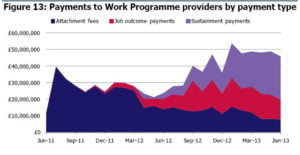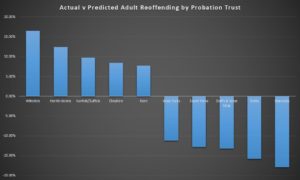
How is the justice data lab doing?
The purpose of the Justice Data Lab was to make it possible for small voluntary organisations to find out if their work with offenders made a difference to reoffending rates. It was launched as part of the Transforming Rehabilitation project as a way of government, commissioners and Prime providers having a way of comparing the impact of different providers delivering a range of interventions. Despite the strong publicity surrounding the launch of the Data Lab,











